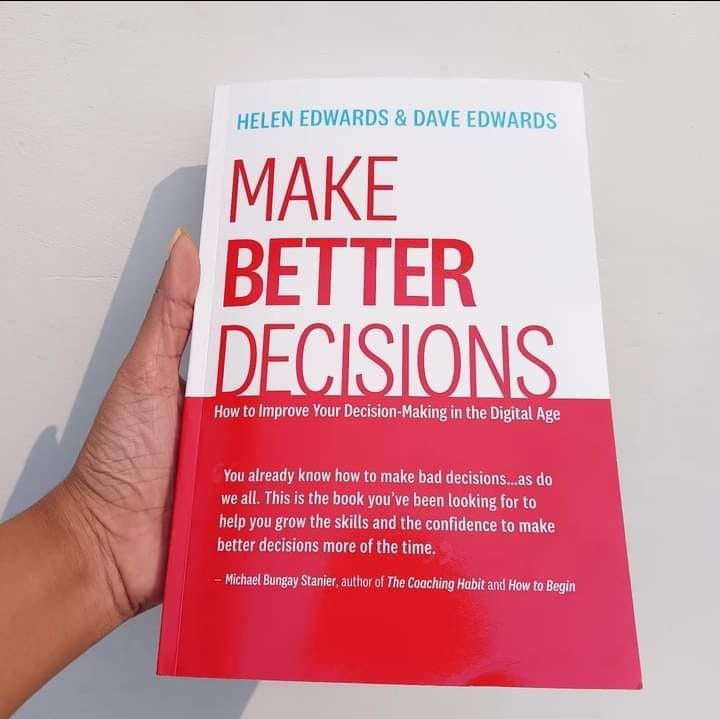
“Make Better Decisions”|Understand the importance of decision-making
1. Understand the importance of decision-making
The book emphasizes the significance of decision-making in our personal and professional lives. It highlights that the quality of our decisions directly impacts our outcomes and overall success. By recognizing the importance of decision-making, we can become more intentional and proactive in improving our decision-making abilities.
The authors discuss various cognitive biases that can cloud our judgment and lead to poor decision-making. They emphasize the need to be aware of these biases, such as confirmation bias or anchoring bias, and provide strategies to mitigate their influence. By understanding and recognizing these biases, we can make more objective and rational decisions.
3. Gather and analyze relevant information
The book emphasizes the importance of gathering and analyzing relevant information before making decisions. It emphasizes the need to consider multiple perspectives, gather data, and conduct thorough research. By doing so, we can make more informed decisions based on evidence rather than relying solely on intuition or personal biases.
4. Consider the long-term consequences
The authors stress the significance of considering the long-term consequences of our decisions. They encourage readers to think beyond immediate gratification or short-term gains and evaluate the potential impact of their decisions in the future. By adopting a long-term perspective, we can make more sustainable and beneficial decisions.
5. Embrace uncertainty and adaptability
The book highlights that decision-making often involves dealing with uncertainty and ambiguity. It encourages readers to embrace uncertainty and be open to adapting their decisions as new information emerges. By being flexible and adaptable, we can navigate uncertain situations more effectively and make better decisions in dynamic environments.
6. Learn from past decisions
The authors emphasize the importance of reflecting on past decisions and learning from them. They encourage readers to evaluate the outcomes of their decisions, identify areas for improvement, and apply those lessons to future decision-making processes. By continuously learning and evolving, we can refine our decision-making skills and make better choices over time.
7. Seek diverse perspectives and feedback
The book emphasizes the value of seeking diverse perspectives and feedback when making decisions. It encourages readers to involve others in the decision-making process, consider alternative viewpoints, and actively seek feedback. By soliciting input from others, we can gain valuable insights and make more well-rounded decisions.
8. Trust your intuition but verify with logic
While intuition can be a valuable tool in decision-making, the authors caution against relying solely on gut feelings. They advocate for balancing intuition with logical reasoning and evidence-based analysis. By combining intuition with a logical approach, we can make more balanced and reliable decisions.
9. Take responsibility for your decisions
The book emphasizes the importance of taking responsibility for our decisions, regardless of the outcomes. It encourages readers to learn from both successful and unsuccessful decisions and take ownership of the consequences. By embracing accountability, we can cultivate a growth mindset and continuously improve our decision-making abilities.
10. Practice mindfulness and self-awareness
The authors emphasize the role of mindfulness and self-awareness in decision-making. They encourage readers to cultivate a mindful approach, be present in the decision-making process, and reflect on their values and priorities. By practicing mindfulness and self-awareness, we can make decisions that align with our authentic selves and lead to greater fulfillment.





